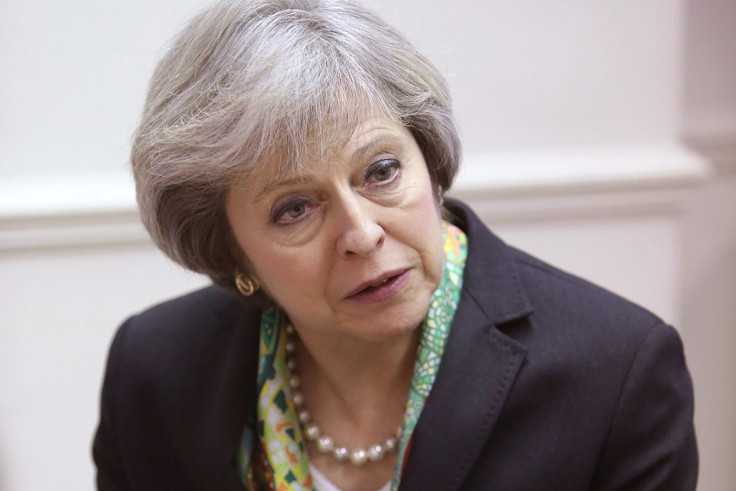The PM is being coy about what Brexit means because she knows that words move markets
A blunt statement that we're leaving the single market would mean nuances of negotiated agreements are lost.
Just before the Christmas recess, I had a slightly surreal experience. Arch-Brexiteer Steve Baker came up to congratulate me on my appearance on the Daily Politics. Considering my last appearance on the show, defending George Osborne's fantasy post-Brexit emergency budget, had quickly became a cause celebre for Brexiteers to mock, I found this turn of events somewhat surprising.
The reason Steve Baker was suddenly a fan was because I had challenged the idea of there being a choice between a hard or soft Brexit. In fact, many people have been pretending that we have a smorgasbord of choices - hard, soft, fake, grey, red-white-and-blue. But to coin a phrase, Brexit really does mean Brexit.
Shrewder commentators, notably Janan Ganesh in the Financial Times, have pointed out that nothing the prime minister said on Ridge on Sunday was news. It's been said many times before. It was said throughout the campaign.
Leaving the European Union means leaving the single market. There is no chance that we can leave the EU, have access to the single market, and control our borders. Considering that one of the main reasons people voted to leave the European Union was precisely to impose border controls on those who enter the country, anything less will be unacceptable to them. And considering that free movement is an absolute sine qua non of the single market, you cannot have one without the other. QED.
Ditto the Customs Union. There is no way the UK will seek to be in the customs union as we seek to leave the EU. While being in the customs union only restricts freedom to negotiate tariffs on some goods, it still means that it would leave us with one hand tied behind our back when negotiating free trade agreements with other countries. That, too, would be unacceptable to the Brexiteers, who, understandably, having got us into this mess, should have as free a hand as possible to get us out of it.

In effect, therefore, we will leave behind all our current trading arrangements with the EU, and have to come up with an alternative. This is what the prime minister means when she talks about the best possible deal for the UK. There is much to hope for. It is absolutely true that single market access remains vital to our economy. The complex supply chain for the vehicle manufacturing industry is simply the most high-profile example. But there are causes for optimism nevertheless. We remain the world's largest foreign investor in the US, for example, despite having no trade treaty with them.
The decision this week by Snapchat to base its international business in the UK is an important vote of confidence. Admittedly, moving bytes, not goods, means it's easier to locate anywhere. But tax rates, labour laws, and a creative ecology are strong pulls for any business.
The most likely outcome, and clearly what the PM and her team are working on, is a series of bilateral trade deals with the EU. This presumably will focus on financial services, as well as key manufacturing sectors. It may entail payments to the EU, which I would support, or simply a bespoke tariff arrangement on top of WTO rules. This is where all the heavy lifting will take place.
We may also have a unique immigration arrangement with the EU. One of the benefits of free movement is that, if one partner moves for work, the other partner can also seek work in the new country. That is a huge pull for talented labour, and something we should look to replicate. There is also the vexed question of EU nationals already here, as well as the millions of Brits who have made their home on the continent.
Why then is the PM being so coy about what Brexit means? Well, she understands that words move markets. And she also knows that a blunt statement that we are leaving the single market and customs union would mean that all the nuances of separately negotiated agreements for key sectors would be lost. Much better to keep her cards close to her chest, and as we move away from the EU be able to produce some good news stories that will dull the pain. So having been so robust at the top of this piece about Brexit meaning Brexit, perhaps we will have a grey Brexit after all. But it will be hard.
Ed Vaizey is Conservative MP for Didcot and Wantage and was Minister for Culture & Digital Economy 2010-16
© Copyright IBTimes 2025. All rights reserved.






















